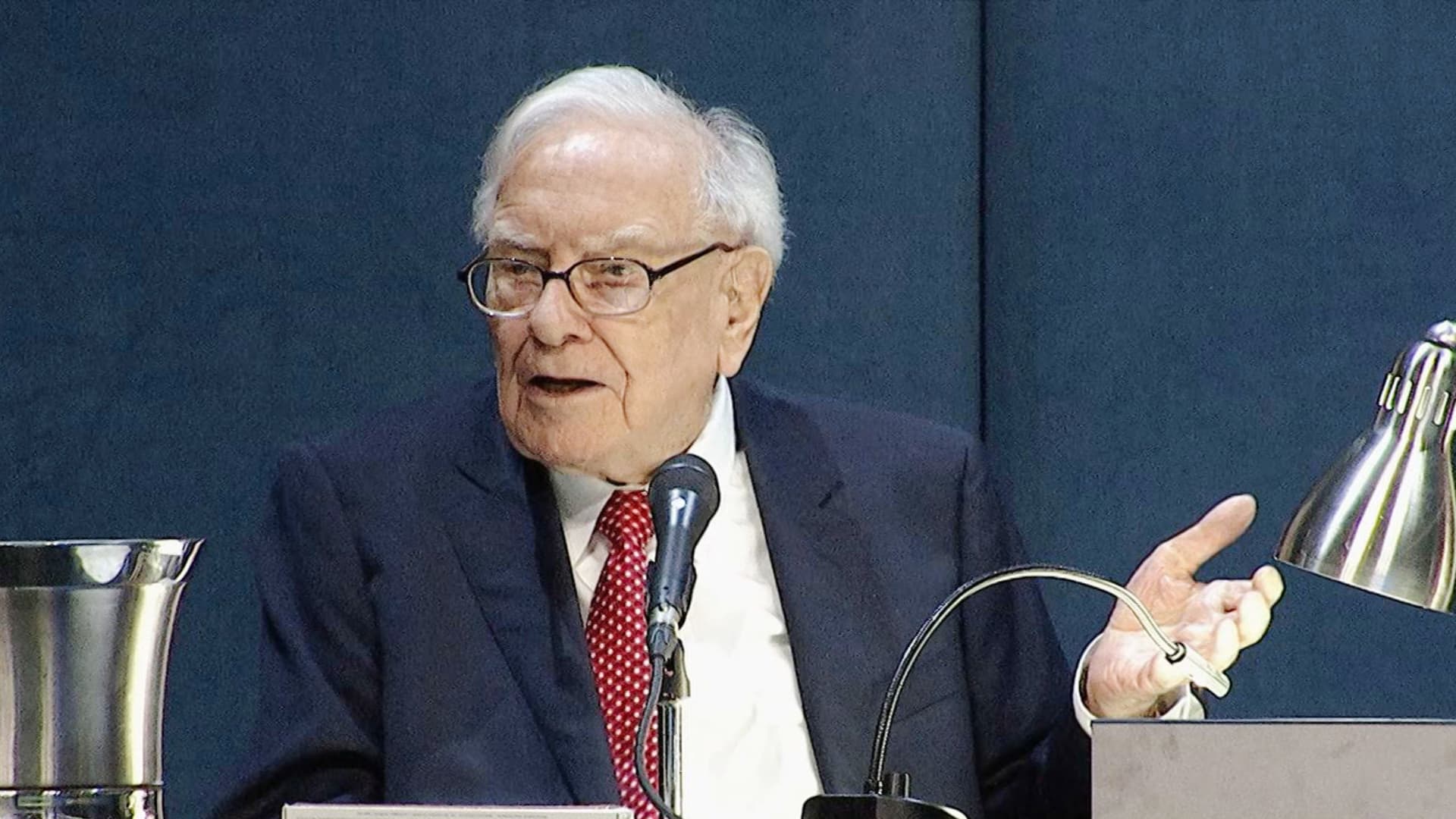Bank of America is still one of Berkshire Hathaway ‘s top equity holdings, but a curious omission from Warren Buffett in his annual report caught the attention of at least one bank analyst. Barclays’ Jason Goldberg pointed to specific quote by the “Oracle of Omaha” in Berkshire’s 10k released on Saturday : “We own a small percentage of a dozen or so very large and highly profitable businesses with household names such as Apple , American Express , Coca-Cola and Moody’s .” The bank analyst argued that failing to mention Bank of America seemed odd given the size and scope of the American lender, originally founded in San Francisco in 1904. “One could wonder, if BAC was still in his top five, perhaps he would have mentioned it,” Goldberg said in a note. “With 69 [million] U.S. consumer and small business clients as well as 3,700 financial centers and 15,000 ATMs across the U.S., it’s hard to argue BAC is not a household name (certainly more so than Moody’s).” This observation came after Berkshire reduced its Bank of America position to about 680 million shares at the end of 2024 from roughly 1 billion shares in the second quarter. The sales put downward pressure on the stock even as the bank’s latest earnings topped expectations thanks to better-than-expected investment banking and interest income. The conglomerate’s stake has now dipped below the important 700 million-share threshold, which is the number of shares Berkshire acquired through low-priced warrants over a decade ago. BAC 1Y mountain Bank of America over the past year Buffett originally acquired his massive BofA stake in two stages. He famously bought $5 billion of preferred stock and warrants in 2011 to shore up confidence in the embattled lender in the wake of the Global Financial Crisis , and later converted the warrants to common stock in 2017. After getting the Federal Reserve’s approval to raise the holding above 10%, Buffett bought 300 million additional shares in the open market in 2018 and 2019. The first 700 million shares had a cost basis of only about $7 per share, while the average cost of the next 300 million shares was in the $30s, Goldberg previously estimated. The theory was that Berkshire would stop selling once it got to 700 million shares due to tax implications, but that proved untrue.





